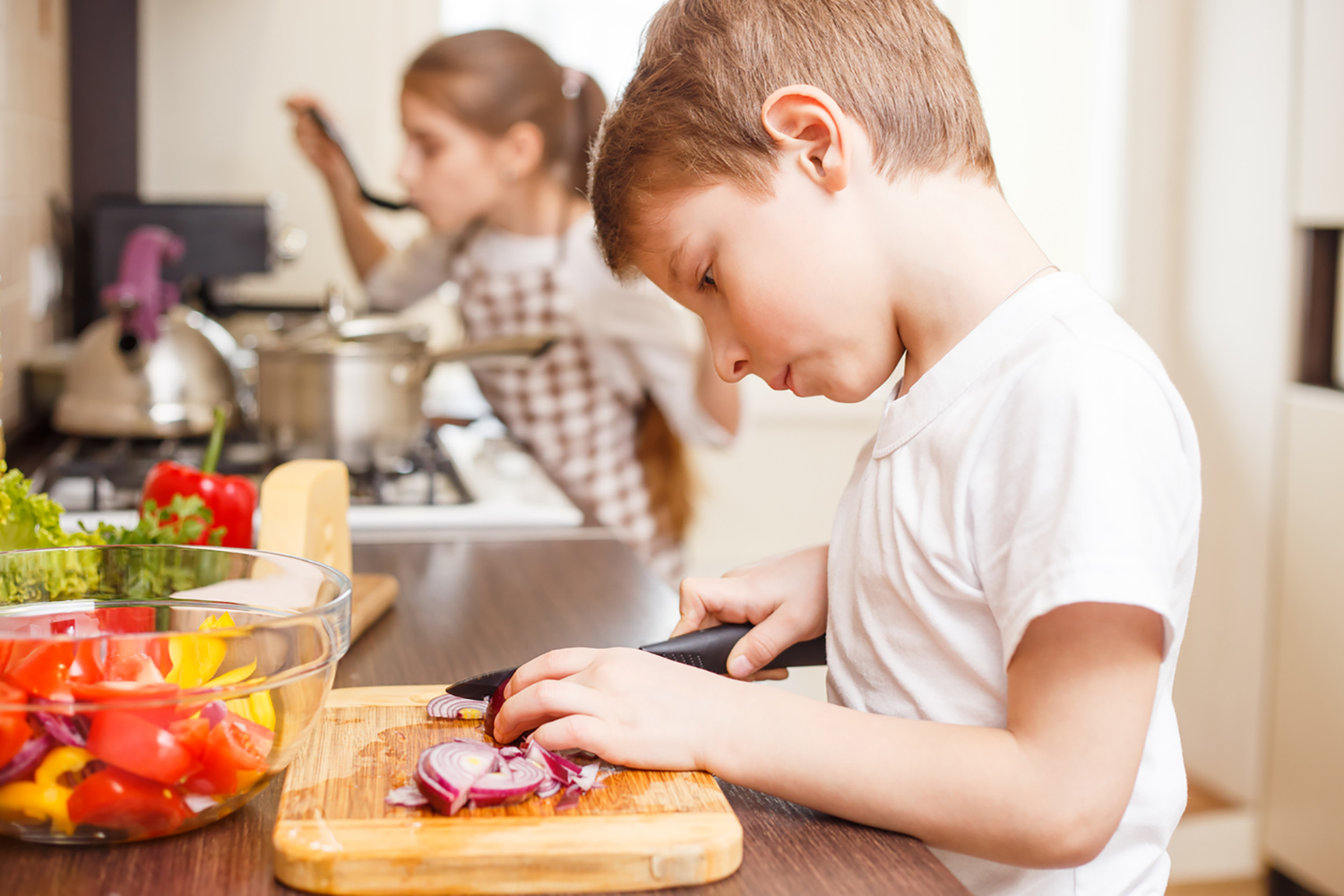What we eat matters. With the agricultural and food industry one of the largest contributors to climate change after fossil fuels, it’s clear we need to rethink what sorts of food we eat and how we produce them.
This is especially important as our food system grows to serve the mouths of more people. As the planet’s population heads towards 10 billion in the coming decades, the extra demand may increase soil degradation, damage ecosystems, reduce biodiversity, deplete water sources and lead to deforestation. But the good news is that even just small changes in food choices can make a big impact. Through your family’s simple actions, you can help reduce agriculture’s carbon footprint and shape a healthier planet.
What you can do now
1. Eat less meat
Meat is one of the most resource-intensive foods on the planet. It’s estimated that meat production generates almost 15% of all our greenhouse gas emissions.
Of all meat types, beef is the worst offender. According to the World Resources Institute, beef creates about:
- 12 times the amount of greenhouse gases per calorie as poultry
- 56 times as much as fruits and vegetables
- 100 times as much as rice.
Here are some easy ways to get less meat in your diet:
- Change things up: swap one or two meals a week for non-meat options. Choose a bean burger instead of a hamburger or start ‘Meatless Monday’ – head to Meat Free Monday for recipes to get you inspired. These little actions can make a huge difference: research shows that if every UK family switched a red meat meal to one based on plants just once a week, the impact on the environment would be the same as taking 16 million cars off the road
- Shift your mindset and plan ahead: try thinking of reducing your meat intake as a way to introduce new foods and ingredients into your family meals. Create a menu plan for the coming week to make it easier to incorporate different, delicious dishes. Not only will this save you time and money, it will also help reduce waste.
2. Compost your food waste
We throw out far too much food waste into our bins. It’s not only a waste of money, but rotting food in landfills also contributes to carbon emissions. A better option is to compost as much as you can. You’ll find you save a lot of waste, and your garden and pot plants will love you for it.
3. Grow your own
There’s nothing more satisfying than being able to eat food you have grown. Whether you have a garden, balcony or just a kitchen windowsill you can grow your own herbs, vegetables and fruit. It’s a great way to help your family access fresh food and get kids involved in the process. You’ll also help reduce the carbon emissions involved in transporting food to your local shop, and limit waste from packaging.
4. Eat what’s in season
Eating fruit and vegetables that are in season means it’s much more likely they’ve come from a local source. By following a seasonal diet, you can help reduce the carbon emissions that come when food has to be shipped from far away. It’s usually cheaper to choose seasonal items, too.
5. Use a water bottle
Rather than buying expensive water in plastic bottles, start carrying your own water bottle that you can fill up for free. Reducing single-use plastics not only helps our waterways and oceans, but also prevents the release of greenhouse gases when each bottle is created. So keep a reusable bottle in your every-day bag and you won’t be caught out.
6. Choose organic
Compared with traditional farming practices, organic food is usually better for the environment. Organic farming doesn’t use synthetic pesticides and herbicides, which are generally made from fossil fuels. These substances are harmful to human health and also contribute to greenhouse gas emissions. By choosing organic food where you can, you’re supporting practices that reduce emissions, create less water pollution and soil damage, and reduce harm to wildlife.





